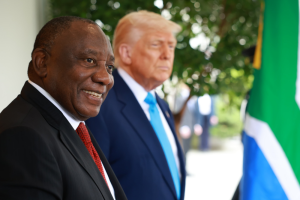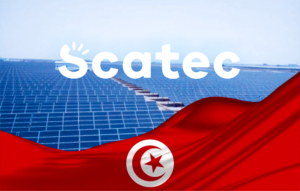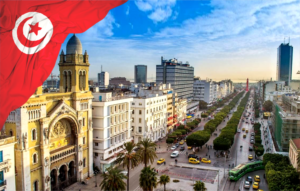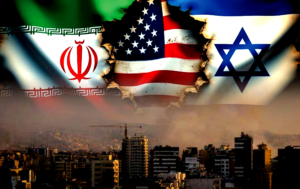South Africa Unveils Support Plan for Exporters Hit by Trump-Era Tariffs
South Africa Scrambles to Shield Exporters from New 30% US Tariffs

PRETORIA: The South African government on Friday announced a series of emergency support measures for local exporters bracing for the impact of a new 30% tariff imposed by the United States. The move, spearheaded by President Donald Trump, is expected to deliver a significant blow to the nation’s critical automotive and agriculture sectors.
In response to the looming trade barrier, the Department of Trade, Industry and Competition has launched an “Export Support Desk.” The initiative aims to guide affected companies through the new trade landscape and help them identify alternative international markets. Describing the situation as “a trying moment for South Africa,” Trade Minister Parks Tau underscored the gravity of the challenge.
The tariffs stem from an executive order signed by President Trump on Thursday as part of his administration’s ongoing campaign to reshape global trade dynamics. The higher import duties, which target dozens of countries, are set to take effect in just seven days, leaving South African businesses with a narrow window to prepare.
President Cyril Ramaphosa confirmed that a comprehensive support package for the most vulnerable exporters is being finalized, with details expected shortly. In a statement, he emphasized a continued willingness to engage with Washington, stating, “All channels of communication remain open to engage with the US, and our negotiators are ready pending invitation from the US.”
The tariffs were imposed despite months of efforts by Pretoria to secure an exemption. The South African government had reportedly offered to increase purchases of US liquefied natural gas and boost investment in American industries in exchange for tariff relief. However, the proposal went unanswered amid simmering tensions over South Africa’s foreign policy positions and its domestic affirmative action laws, both of which have drawn public criticism from President Trump.
The United States is South Africa’s second-largest bilateral trading partner after China, making the tariffs particularly damaging. Key exports to the US market include vehicles, iron and steel products, wine, and citrus fruit. Major companies like Mercedes-Benz South Africa, one of the country’s leading automotive exporters to the US, are among those directly in the line of fire.
However, the government’s response has not been without its critics. The Democratic Alliance, the country’s official opposition party, dismissed the Export Support Desk as a “laughable” measure, demanding more decisive action from the government to protect South African jobs and secure market access. As the deadline approaches, exporters face a period of acute uncertainty, watching to see if the government’s support measures will be sufficient to weather the storm.






